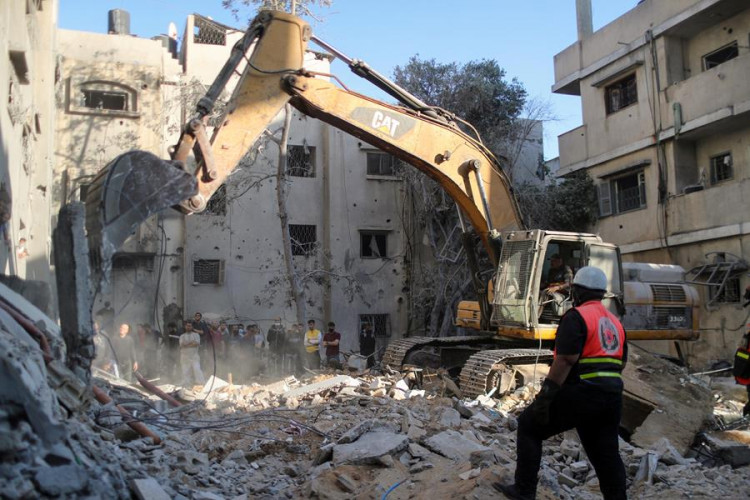Israeli forces have now completely encircled Gaza City, intensifying its military campaign against Hamas. Concurrently, claims of Israeli airstrikes hitting UN-run schools sheltering civilians have ignited a global outcry over the spiraling civilian death toll.
The latest phase of the conflict began about a week ago with Israel initiating a ground operation, deploying tanks, bulldozers, infantry, and combat engineers into Gaza. Their primary objective, as stated by Rear Adm. Daniel Hagari, an Israel Defense Force (IDF) spokesman, is to neutralize underground infrastructure, explosives, and other potential threats, paving a secure way for their troops.
However, the United Nations Relief and Works Agency (UNRWA) portrays a different picture of the ongoing offensive. UNRWA's chief, Philippe Lazzarini, reported that Israeli warplanes struck several of their schools being used as civilian shelters. He confirmed that these attacks led to over 20 fatalities. Visual evidence of the aftermath from one such school in Jabalya showed devastating scenes of chaos, with bloodied bodies scattered and echoes of anguished cries.
Lazzarini further highlighted the dire situation in Gaza, stating that fuel stocks essential for powering medical services and delivering aid have been completely depleted due to a prolonged Israeli blockade. Previous warnings by independent UN experts suggested such a blockade, hindering the entry of essential supplies like fuel, food, and water, might be in violation of international law.
As tensions escalate, Gaza residents are desperately looking for an escape. A recent report indicated that over 300 foreign nationals left the enclave, with Egypt preparing to facilitate the evacuation of close to 7,000 foreigners from over 60 countries.
The calls for peace and a resolution grow louder each day. Ismail Haniyeh, Hamas' political leader, proposed an immediate ceasefire, hinting at negotiations that could pave the way for an independent Palestinian state. Yet, Israel's actions in Gaza, which they justify as target strikes, have led to a reported 9,025 deaths and over 22,000 injuries. These numbers have alarmed global human rights organizations, with Amnesty International and Human Rights Watch suggesting possible war crimes.
The international community's patience is waning. Several countries have initiated diplomatic measures in protest against Israel's actions. Jordan, Chile, and Colombia have all recalled their ambassadors, with Bolivia severing its diplomatic ties with Israel, citing its actions as "crimes against humanity."
Meanwhile, the strikes in Jabaliya have rekindled accusations of war crimes and raised concerns over Israel's military strategy. Israel defends its actions, stating its intent was to target Hamas command centers. However, critics argue that the densely populated areas shouldn't be targeted, increasing the chances of civilian casualties. Concerns have grown so palpable that even US politicians are questioning the war's popularity and its devastating impact on civilians.
The US remains a key player in the unfolding scenario, with differing opinions among its leaders. While some like Sen. Dick Durbin advocate for a ceasefire and seek a longer-term solution, others, including Speaker Mike Johnson, argue against it, pointing fingers at Hamas for initiating hostilities.
The IDF has repeatedly asked Gaza residents to evacuate, yet the dense population and limited space make such an exodus challenging. Amid this turmoil, Israel continues its mission to destroy Hamas, with relentless airstrikes and ground operations moving closer to Gaza City.
The consistent civilian casualties, including those from strikes on places like hospitals, have spotlighted the difficulties civilians face in trying to escape the crossfire between the battling forces of Hamas and Israel.





